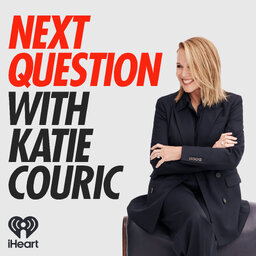This year was a wild ride — so Katie and Brian are reviewing the biggest people, biggest moments, and biggest trends in a two-episode 2018 extravaganza. In this first part, they start off with Jia Tolentino (The New Yorker) and Ira Madison (Keep It) to rehash the year in pop culture, from Ariana Grande stardom to the royal wedding. Then, Dan Savage (Savage Lovecast) and Sarah McBride (Human Rights Campaign) discuss some of the big strides in the LGBTQ community, as well as continuing challenges to the rights of LGBTQ people. Finally, Jamelle Bouie (Slate, CBS News) and Maria Hinojosa (Latino USA) tackle the year in race. Buckle up — we’ve got a lot to talk about! This episode is sponsored by Little Passports (www.littlepassports.com/KATIE), ADT (www.ADT.com/SMART), Prudential (www.prudential.com/stateofus), and Boll & Branch (www.bollandbranch.com code: KATIE).
Learn more about your ad-choices at https://www.iheartpodcastnetwork.com
 Next Question with Katie Couric
Next Question with Katie Couric


